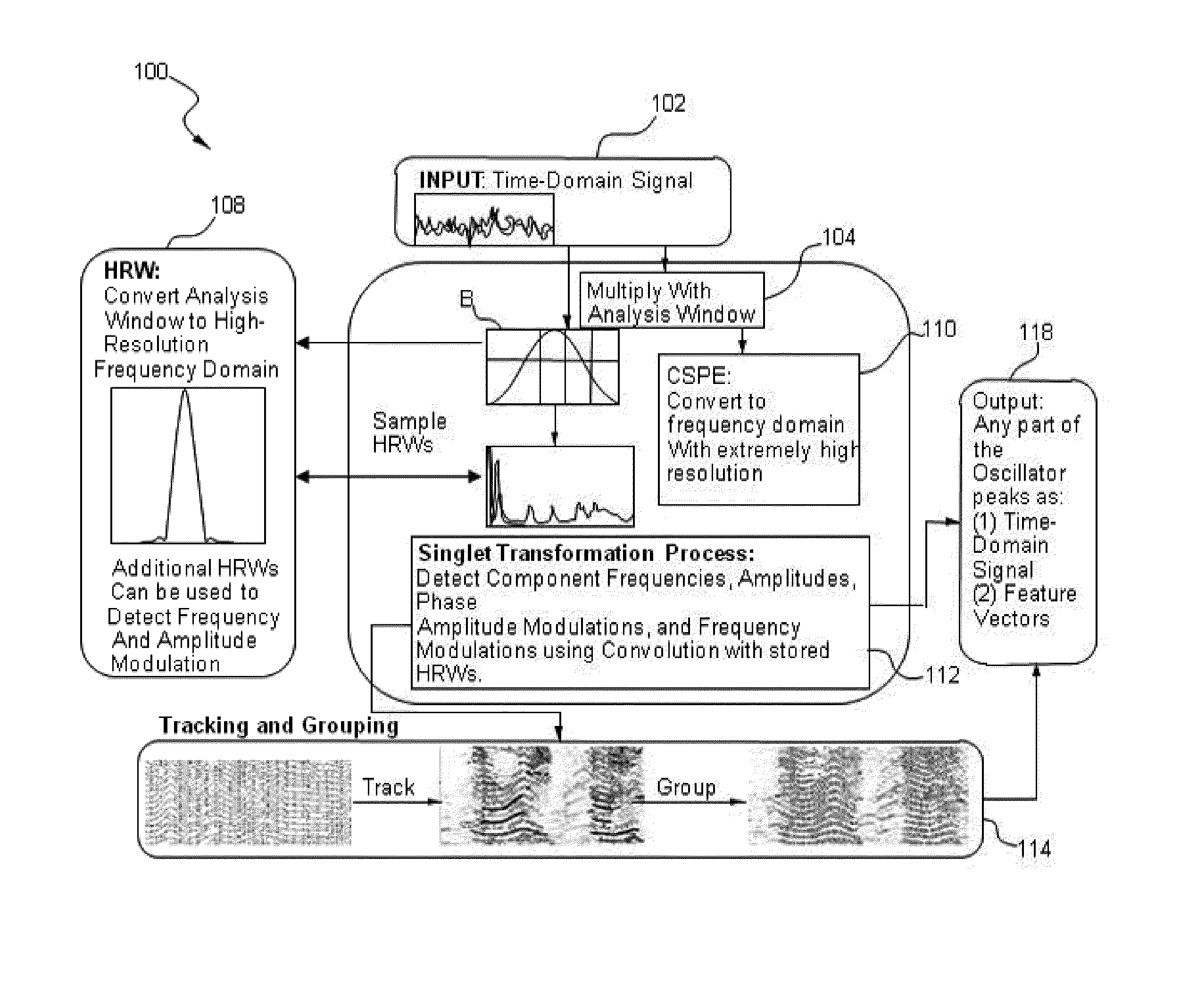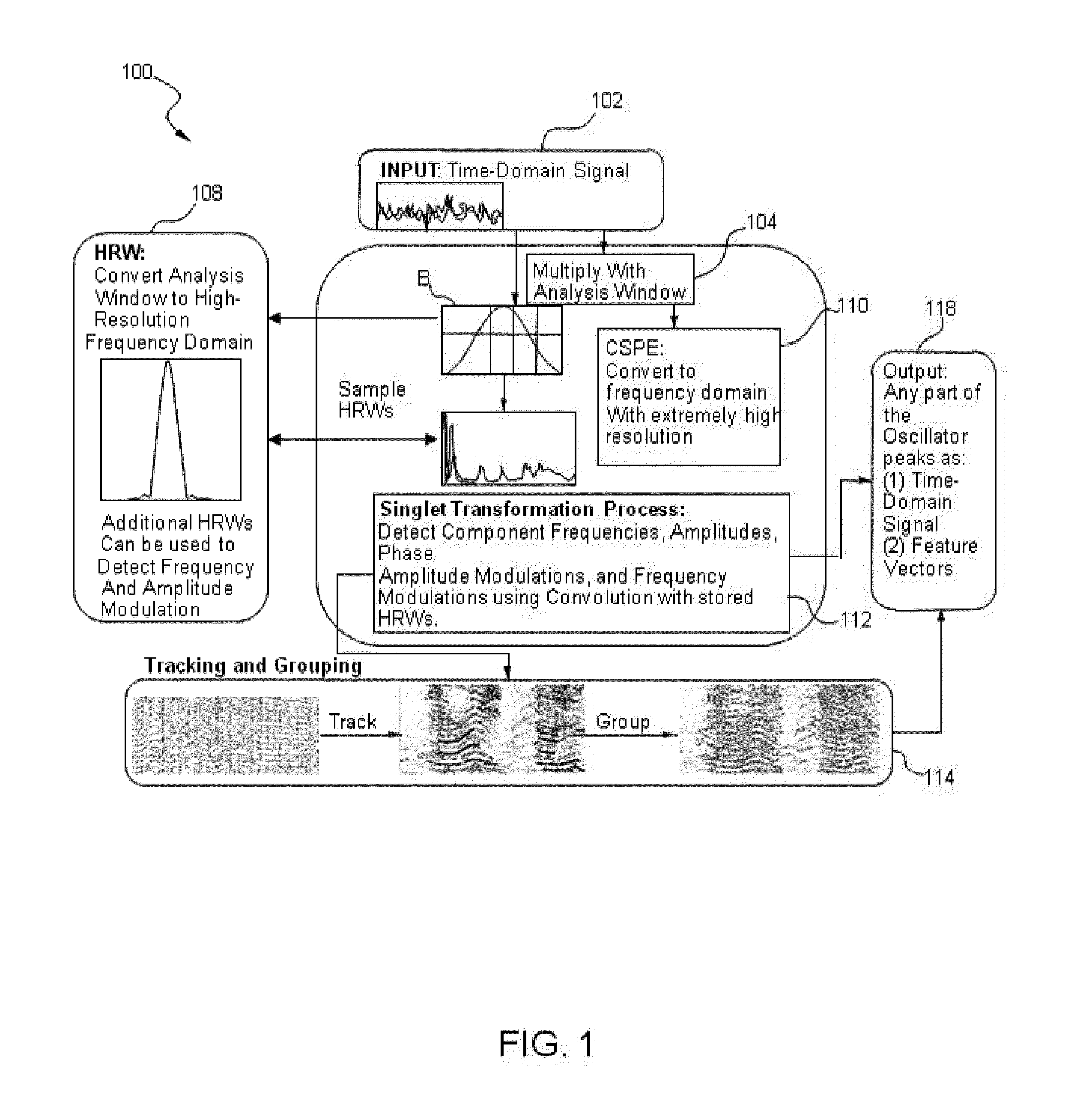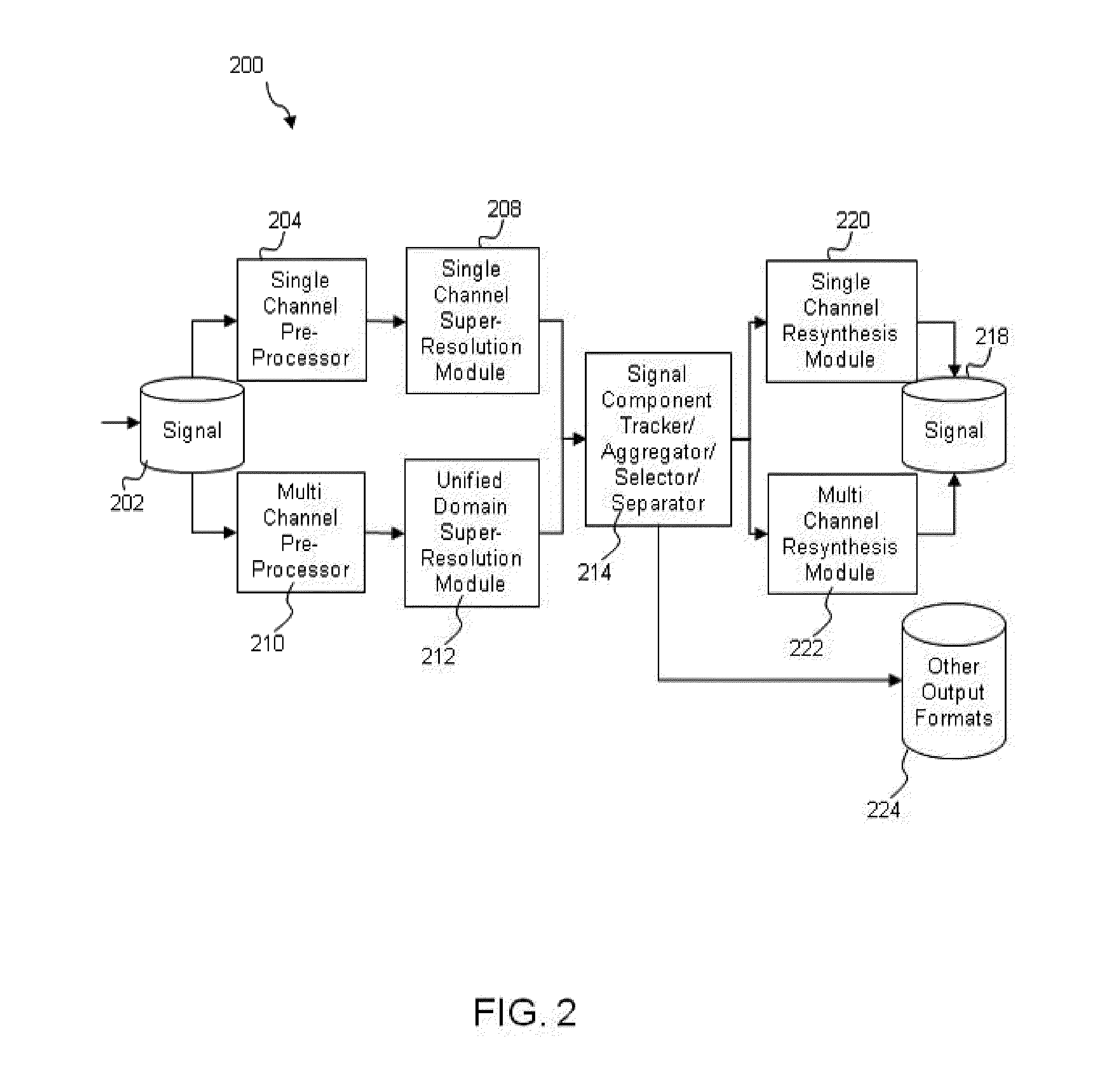Systems and methods for source signal separation
a signal source and signal processing technology, applied in the direction of direction finders using radio waves, multi-channel direction-finding systems using radio waves, instruments, etc., can solve the problems of inability to effectively identify and isolate signal sources within a given signal, prohibitive amount of processing for conventional ss techniques,
- Summary
- Abstract
- Description
- Claims
- Application Information
AI Technical Summary
Benefits of technology
Problems solved by technology
Method used
Image
Examples
Embodiment Construction
[0071]FIG. 1 illustrates an exemplary and non-limiting embodiment of a method 100 for source signal separation. In an example, a representative input signal may be a source signal (SS) including an audio signal / sound as an input to the system such that the SS is a source agnostic and may be used with respect to any type of source signal. Other representative input signals may include but are not limited to ambient sound, audio, video, speech, image, communication, geophysical, SONAR, RADAR, thermal, optical / light, medical, and musical signals. The method 100 may include one or more steps that may be used in combination or in part to analyze the SS, separate the SS into its constituent elements, and then reconstitute the SS signal in whole or in part.
[0072]As shown in FIG. 1, the method 100 may be configured to select a signal at step 102 so as to process the signal for the signal separation. In an example, contiguous samples (referred to herein as “windows” or “sample windows” that ...
PUM
 Login to View More
Login to View More Abstract
Description
Claims
Application Information
 Login to View More
Login to View More - R&D
- Intellectual Property
- Life Sciences
- Materials
- Tech Scout
- Unparalleled Data Quality
- Higher Quality Content
- 60% Fewer Hallucinations
Browse by: Latest US Patents, China's latest patents, Technical Efficacy Thesaurus, Application Domain, Technology Topic, Popular Technical Reports.
© 2025 PatSnap. All rights reserved.Legal|Privacy policy|Modern Slavery Act Transparency Statement|Sitemap|About US| Contact US: help@patsnap.com



